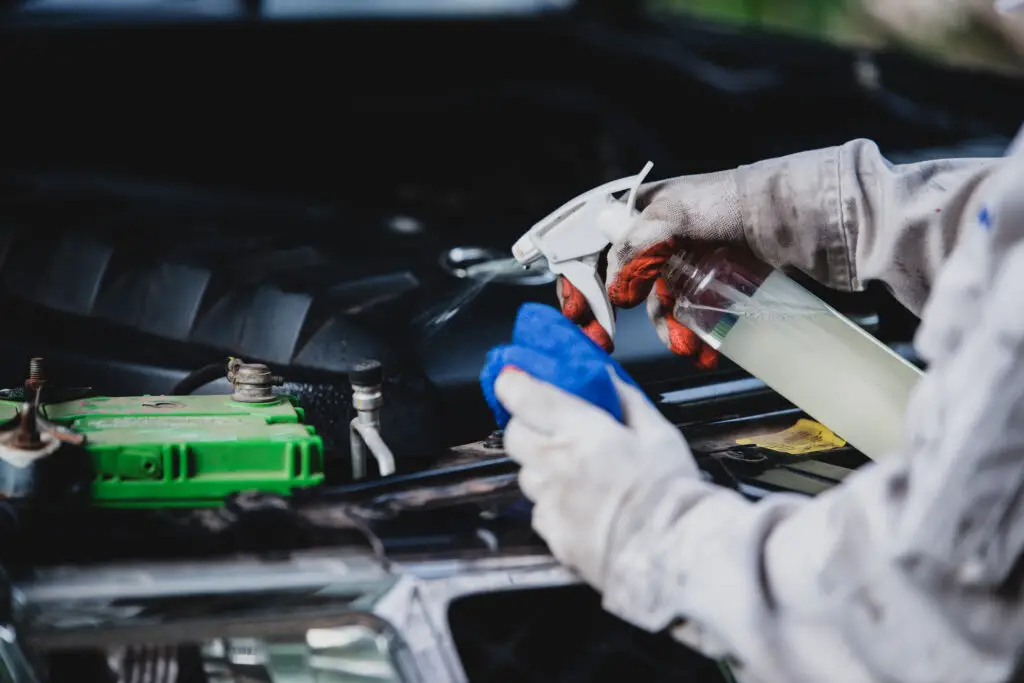How to keep car battery terminals from corroding? If you’ve ever popped the hood of your car and noticed a crusty, white, or blue-green substance around your battery terminals, you’re not alone. This is corrosion, and it’s more than just an eyesore—it can lead to all sorts of electrical issues, from hard starts to complete battery failure.
But fear not! Keeping your car battery terminals corrosion-free is simpler than you might think. Here’s a detailed guide on how to do just that.
What Causes Battery Terminal Corrosion?
Before we dive into prevention, it’s essential to understand what causes corrosion in the first place. Corrosion typically forms on battery terminals due to the release of hydrogen gas from the sulfuric acid in the battery. When this gas comes into contact with the metal of the battery terminals, it reacts to form that crusty buildup we all dread.
Common causes of corrosion include:
- Overcharging: If your car’s charging system is malfunctioning and overcharging the battery, it can cause the battery to vent more gas, leading to increased corrosion.
- Electrolyte Leakage: A leaking battery can also cause corrosion, especially around the terminal posts.
- Age: As a battery ages, it becomes more prone to corrosion. The older the battery, the more wear and tear it has experienced, leading to potential leaks and gas venting.
Step-by-Step Guide to Prevent Battery Terminal Corrosion
Now that you know what causes corrosion, let’s talk about how to prevent it. Here are some tried-and-true methods to keep those terminals clean and your car running smoothly.
1. Regular Inspection
The first and most crucial step is to make a habit of checking your battery terminals regularly. This doesn’t require any special tools—just pop the hood and take a look. If you notice any buildup, it’s time to take action before it gets worse.
Tip: Try to check your battery at least once a month, especially if you drive in extreme weather conditions, which can accelerate corrosion.
2. Clean the Terminals
If you already see some corrosion, don’t worry—cleaning your battery terminals is straightforward.
- Disconnect the battery: Start by disconnecting the negative terminal (usually marked with a minus sign or black cap), followed by the positive terminal. This order is crucial to avoid any short circuits.
- Clean the terminals: Mix a tablespoon of baking soda with a cup of water to create a cleaning solution. Using an old toothbrush or wire brush, scrub the corrosion away. Baking soda neutralizes the acidic corrosion, making it easier to remove.
- Rinse and dry: After scrubbing, rinse the terminals with water and dry them thoroughly with a clean rag.
Note: Always wear gloves and eye protection when working with car batteries to protect yourself from acid exposure.
3. Apply a Protective Coating
Once your terminals are clean, you’ll want to apply a protective layer to prevent future corrosion.
- Petroleum Jelly: A simple and effective solution is to apply a thin layer of petroleum jelly (like Vaseline) to the terminals. This acts as a barrier between the metal and the air, reducing the chance of corrosion.
- Anti-Corrosion Spray: Alternatively, you can use a commercial anti-corrosion spray designed specifically for battery terminals. These sprays often contain compounds that neutralize acid and provide a long-lasting protective coat.

Tip: Some auto parts stores sell battery terminal protectors—small felt rings that fit over the terminals and are pre-treated with anti-corrosion compounds. These are another effective option.
4. Ensure Proper Battery Maintenance
Keeping your battery in good condition overall is key to preventing terminal corrosion. Here are a few maintenance tips:
- Check the battery’s water level: If you have a non-sealed battery, make sure the water (electrolyte) level is sufficient. Low electrolyte levels can cause the battery to overheat and produce more gas, leading to corrosion. Use only distilled water to top off the battery.
- Avoid overcharging: Overcharging is a significant cause of terminal corrosion. If you’re using a battery charger, make sure it’s set to the correct voltage. Your car’s charging system should also be checked regularly to ensure it’s not overcharging the battery.
- Replace old batteries: If your battery is more than three years old and you’re starting to notice frequent corrosion or electrical issues, it may be time to replace it. An old battery is more prone to leaks and gas venting, both of which contribute to corrosion.
5. Use Corrosion-Resistant Battery Terminals
For a more permanent solution, consider upgrading to corrosion-resistant battery terminals. These terminals are typically made of materials that are less prone to oxidation, such as lead or brass coated with a protective layer. While they might be a bit more expensive, they can save you time and hassle in the long run.
6. Drive Regularly
Believe it or not, driving your car regularly can help prevent battery terminal corrosion. When your car sits idle for long periods, the battery isn’t getting charged as often, which can lead to a buildup of sulfate on the terminals. Taking your car for a spin, even just for short trips, keeps the battery charged and reduces the risk of corrosion.
Tip: If you know your car will be sitting unused for an extended period (like during a vacation), consider disconnecting the battery altogether to prevent corrosion.
Conclusion
Battery terminal corrosion is a common issue, but it’s one that’s easily preventable with a little regular maintenance. By inspecting your battery regularly, keeping it clean, applying a protective coating, and ensuring your car’s electrical system is in good shape, you can keep corrosion at bay and extend the life of your battery.
Remember, a clean battery is a happy battery—and one that’s less likely to leave you stranded with a dead engine. So take a few minutes every month to give your battery the care it deserves, and you’ll save yourself a lot of headaches down the road.
Discover more from Chikwem
Subscribe to get the latest posts sent to your email.